Sometimes we live a default life by accident. Below are five areas to work on to live a more intentional life from Julianna of The Simplicity Habit.

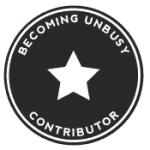
I don't want to live a default life.
If you asked me what I planned for today, I wouldn’t say spending half the day distracted and wasting time on social media. I don’t think that’s anyone’s goal, but it happens. So often my days don’t go as I hoped.
Life looks different when I more carefully consider my choices.
It’s easy to live a default life by going with the flow and floating from one thing to the next. You get to the end of the day and wonder what happened.
Where did the time go?
What did I actually do today?
Have you ever asked yourself those questions? If so, you’re not alone.
When I began simplifying my home and life, I realized that I hadn’t been living intentionally. I made purchases on impulse. I briefly believed advertising claims that I needed that thing.
My time was being spent much the same way.
I was saying yes to things by default without taking the time to think through my choices.
I wasn’t considering how this was impacting my family or my role as a mother.
I did what I thought I was supposed to because it seemed to be what everyone else was doing.
My resources are my money, time, and attention. If I’m not intentional in how I am spending them, then I’m living a default life.
This happens so often in our culture. There are so many distractions that keep us from our purpose and goals. Breaking out of that takes a focused effort.
5 Ways To Opt-Out of Living a Default Life
You don’t live an intentional life by accident. You do live a default life by accident. These are the areas I needed to work on to live a slow life with more intention.
1. Evaluate your goals
You need to know what you’re fighting for and what’s important to you. Out of that flows your priorities and goals.
What do you want to accomplish?
Who do you want to be as a spouse, parent, and friend?
My goals intertwine with my talents and passions. My life experiences and interests have led me down the path I’m on today. I continue to set personal and professional goals as I journey forward.
How do you plan to share your gifts with the world?
What do you want your life to reflect?
Think through it, write it down.

2. Consider how you spend your money
If you don’t have a budget yet, now is the time to make one. Otherwise, you will come to the end of the month and wonder where it all went.
In a credit culture, it’s so easy to spend more than we have and to get ourselves into debt. Working through my spending was an enlightening process. Budgeting helped me to be more purposeful in how I used our resources.
When you’re intentional with where your money goes, you are making thoughtful decisions that reflect your values and goals. Your budget signifies your intent for how to spend and save your money. When you live within your means you’ll have a greater sense of peace. As you give, you’ll find a greater sense of joy.
How we spend our money reflects our priorities and goals. Living simply in a consumer culture isn’t easy, but it’s worth it.
Where do you want your money to go this month?
Create a budget. Stick to it.
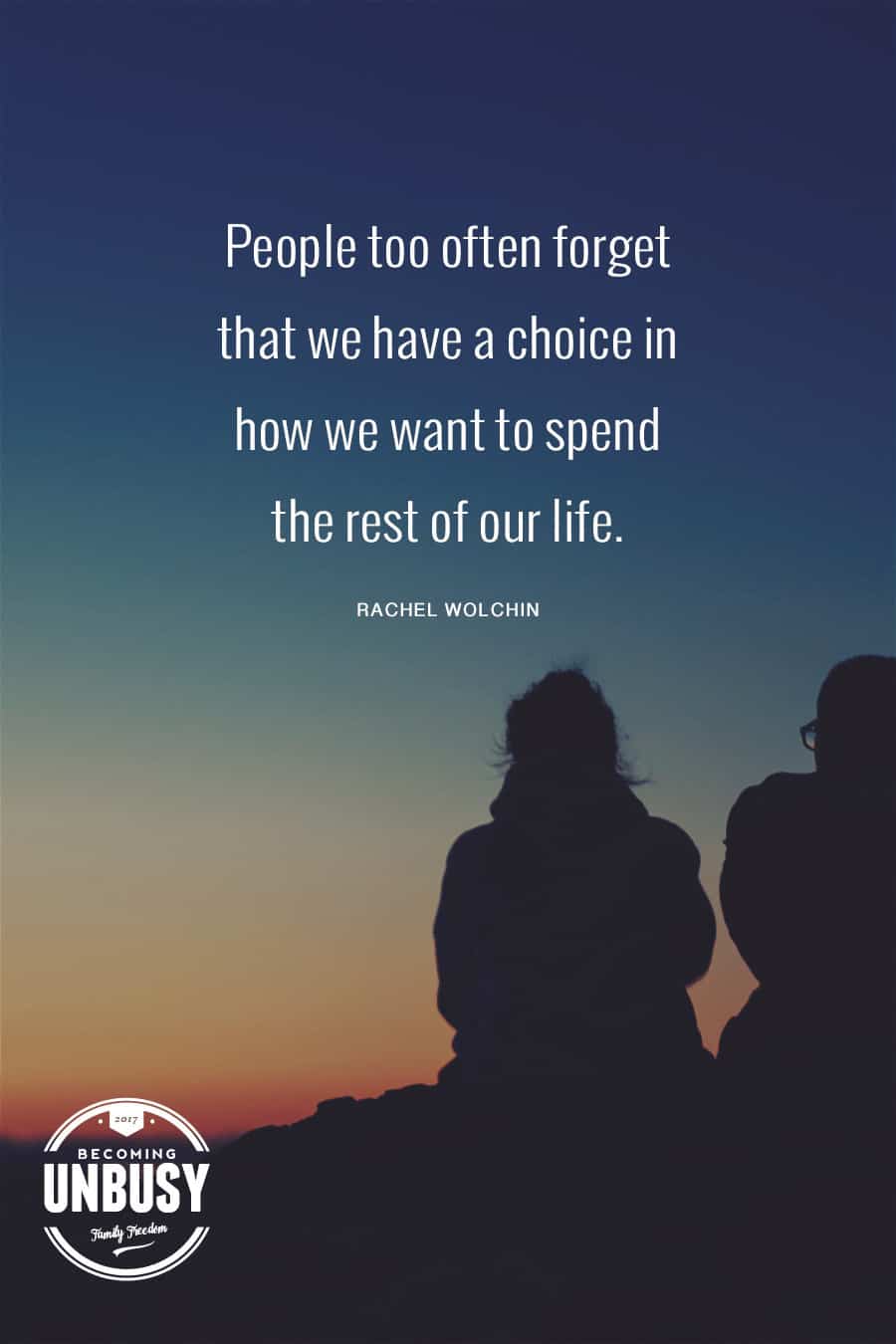
3. Decide how you will spend your time
Being intentional with your time means giving further thought to how you use your yes’s and no’s.
When you say yes to something, you’re by default saying no to other options and opportunities. Take time to consider how your decision will impact your schedule and your life.
Do you feel stressed and overwhelmed? If so, create more margin by saying no more often.
Determine how you want to spend your time each day. Deciding on your priorities in advance will help keep you focused. It also helps prevent wasting away the day.
That doesn’t mean every second needs to be productive. Resting and recharging are critical to avoid burn out. Being intentional is being purposeful with how we use our time.
When your intent is to work, focus to be productive. When it’s time to rest or play, do that. Resist getting sucked into things that waste your time and don’t add to your life.
I’ve worked through this by not allowing distractions and focus on work. It takes concerted effort and discipline, but I’m amazed by how much more productive I am.
What do you want to spend less time on?
What do you want to spend more time on?
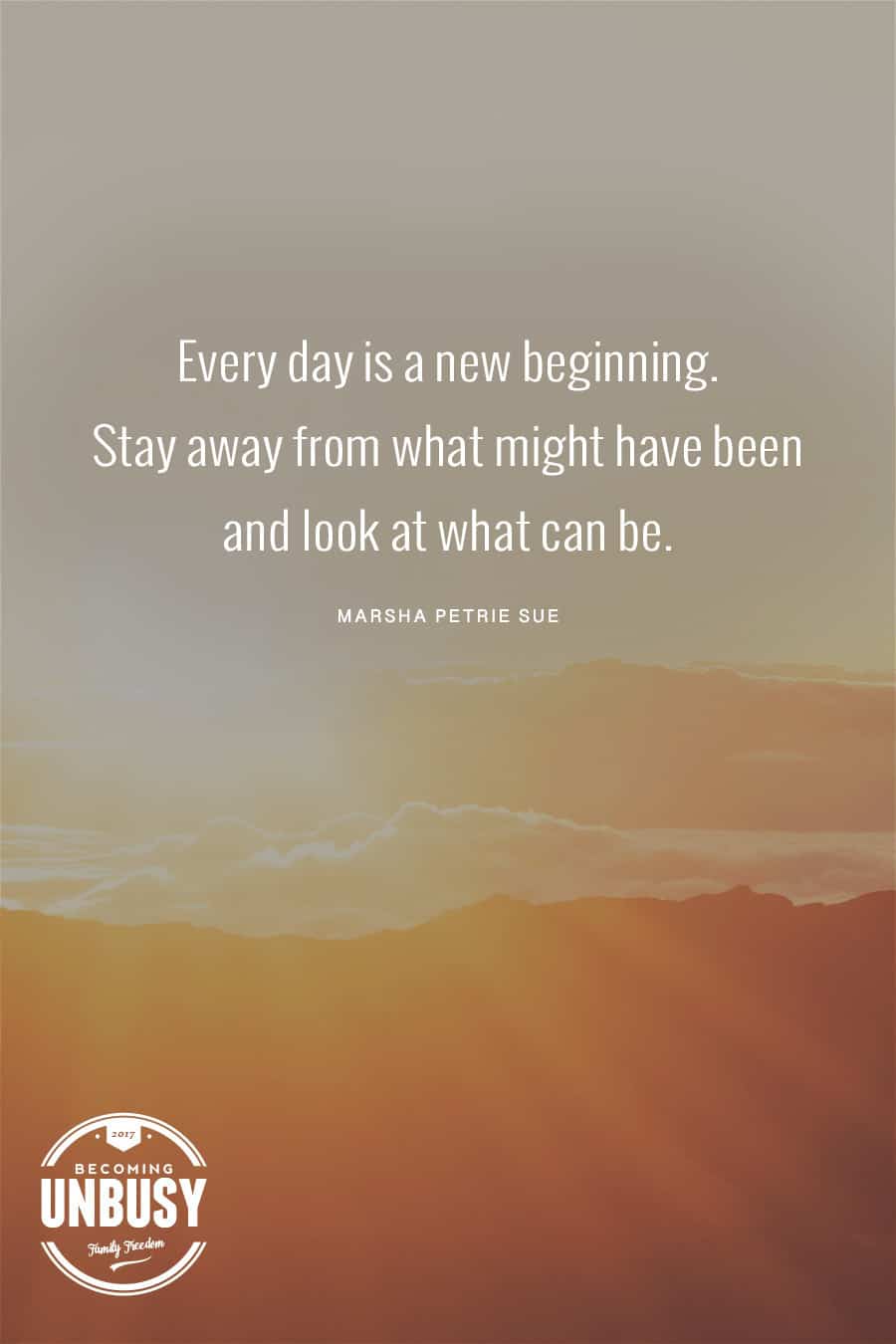
4. Think about what has your attention
We live in a world with a plethora of distractions. Someone or something is constantly competing for our attention. I’ve wasted entire days on distractions.
There are some distractions you can’t completely control. A child who needs you, a car that needs to get to a repair shop, or some other urgent situation.
There are also many distractions we can control. I found that turning my phone on silent helped me be more present and less distracted.
What boundaries can you set up to align your attention with your priorities?
In a world that constantly wants to draw your attention to marketing, fluff stories, or any diversion, make a plan to stay focused.
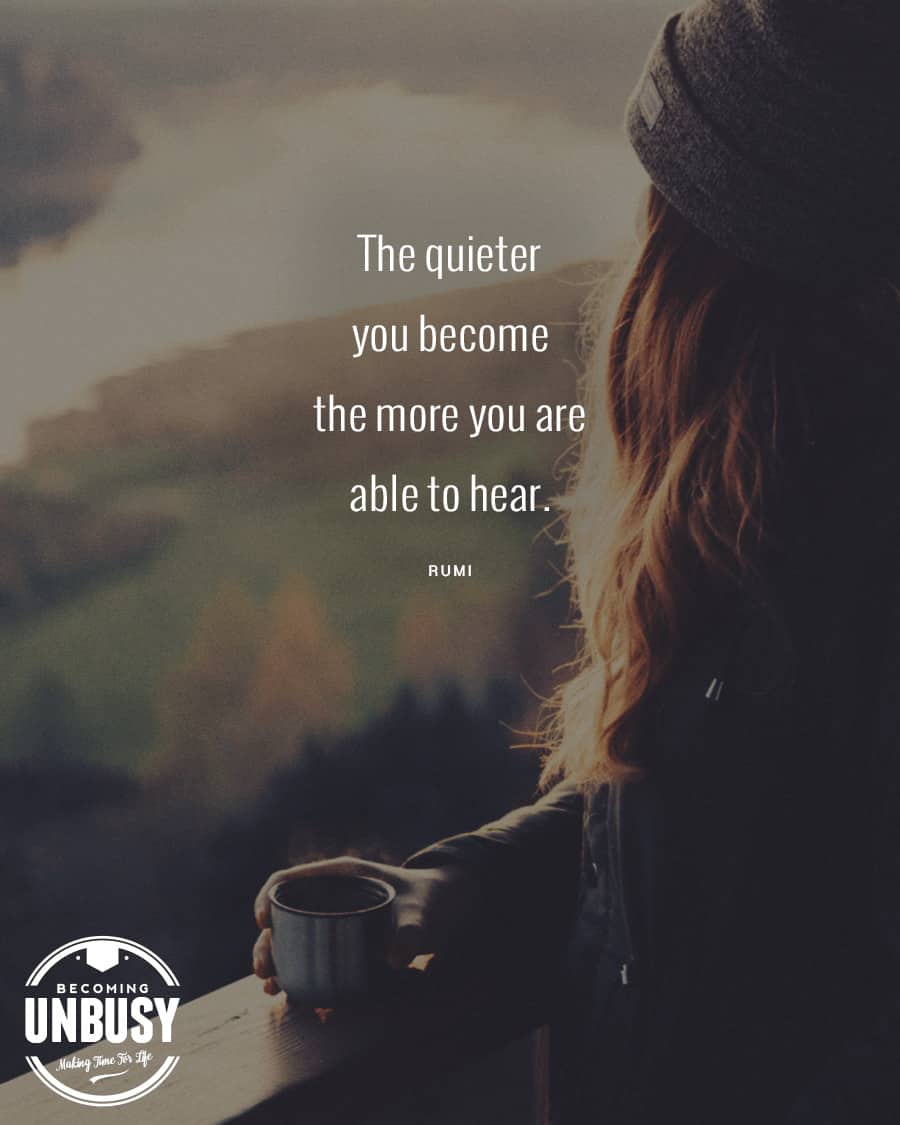
5. Set aside time to reflect
Take time to stop and reflect. Think about what went as planned and what didn’t. Re-evaluate your goals, money, time, and attention.
Do they need adjusting?
What strategies are working well for you?
Which ones aren't working?
Reflecting on what’s working and what isn’t is helpful in course-correcting so you can make changes as needed. It’s always going to be a work in progress.
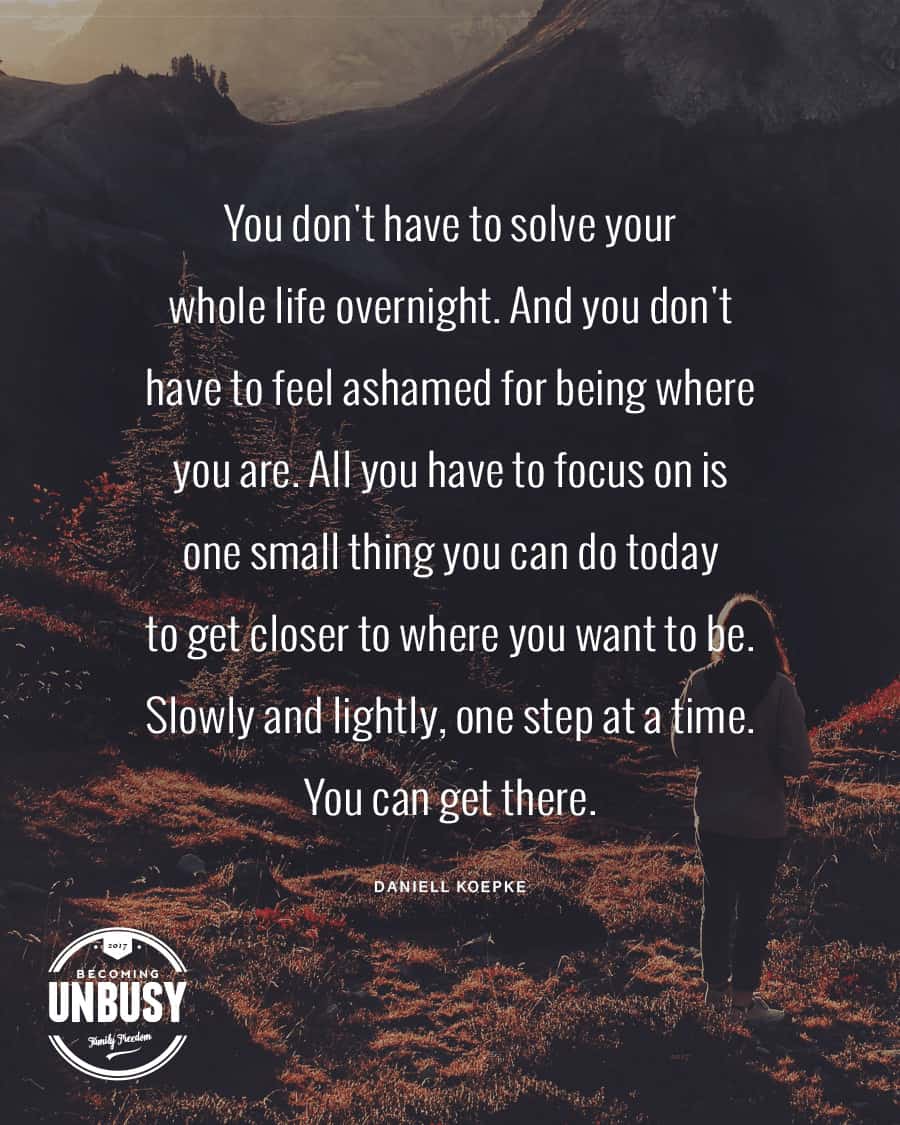
I’m not doing things perfectly on this journey. Perfection is never the goal. I’m working on making choices more closely aligned with my goals and priorities. A life that’s more intentional and not by default.
. . .

Meet Julianna of The Simplicity Habit. She’s passionate about living a life full of purpose and intention. Join her on this journey of simplifying & creating margin so you can say yes to the great.
Find Julianna online: Website | Facebook | Instagram | Pinterest
. . .
Save this post for later:

